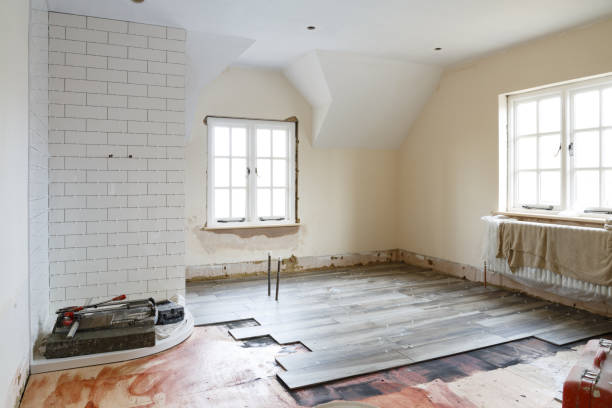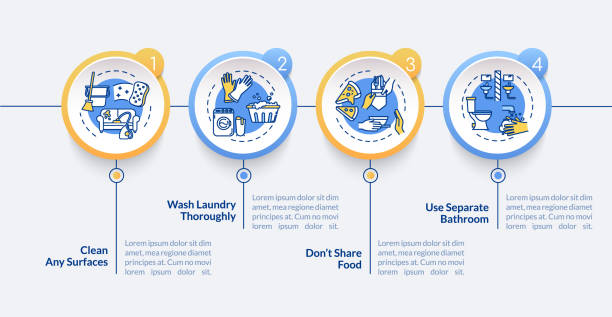How to plan a home renovation from start to finish
It’s exciting to start a renovation because you are one step closer to making your dream house a reality. When you begin to look at the details, you may feel overwhelmed – particularly if this is your first time. It would be best if you planned your remodel. Our tips on planning a renovation will keep you calm and on schedule.
Your Budget Size
The scope of a project is determined by the amount you plan to spend on home renovations. In the second part of this article, we’ll discuss how to create a realistic remodel budget.
Your Property’s Condition
It’s more time-consuming and expensive to renovate a fixer-upper than a home that is already in great shape. As you plan your entire house remodel, keep this in mind, as it will impact your budget and projects.
Your project’s end goal
Are you planning to sell your home or flip the property that you have just bought? Do you plan to live in your house for a long time? Plan your home renovations according to your plans. If you want to raise the resale price of your home, you should focus on remodeling jobs that will increase your ROI. If you wish to update your home so that it better suits your lifestyle, you should start by thinking about the rooms where you spend most of your time.
Establish a Budget for your Project
Next, you need to decide how much money you are willing to spend on a remodel. The budget should include costs for building materials and permits, as well as labor.
Use your first step home improvement project plan to eliminate any elements that don’t meet your priorities. To find the best solution for you, it is a good idea to get estimates from several contractors.
“When you remodel a home, pay attention to your budget so you don’t overbuild in your neighborhood. For instance, if you get the top-of-the-line appliances, flooring, counters and cabinets for your kitchen remodel and it is far above what other homes have in the neighborhood, you may not get your money back. Many homeowners take their eye off of their budget and realize that they overspent on their project when the bill comes.”
Select the right materials for your home remodel
Material costs are the largest cost for any renovation. The materials that you choose for your renovation can have a dramatic impact on the cost. If you select a handmade tile from Italy, your budget can be blown out of the water. Choose materials that are common to save money, such as a classic, bright-white subway tile. Here are some guidelines on material costs for the following installations:
Hardwood flooring: $3 – $10 per square foot
Tile flooring: $3 – $10 per square foot
Cabinets: $80-$90 per cabinet
Countertops: $40-$100 per square foot
Paint – 25 to $100 per hour for a professional painter
Start 6-12 months in advance of your start date
Hire Contractors
You’ll have to hire your team once you’ve created a plan for home renovations and established a budget. You should already know at this stage of your renovation plan which projects you will complete yourself and which you will hire out. Don’t select your contractors solely based on price estimates. Consider the following when interviewing and choosing your contractors:
Years in business: An experienced contractor is a better bet than a newbie.
License for contracting: Verify that your contractor has taken all steps necessary to obtain certifications in their field of work. Note that your contractor might not require a license, depending on where you live.
Certificates of Insurance: Contractors must have insurance covering workers’ compensation, liability, and other risks.
References Call and request references. It’s a good way to ensure that your contractor isn’t just good at writing. You should also check online reviews.
Payment schedule. Reputable contractors won’t require you to pay the entire price up front, and the Better Business Bureau warns against it. However, it’s still important to discuss payment terms prior to construction. It’s worth spending a bit more to find someone with whom you feel comfortable.
Choose the projects you’ll tackle first.
Consider which projects to tackle first when planning your remodel. We recommend that you tackle the messy, large-scale improvements first to avoid any major issues in the future. Consult your contractor to ensure you are on the same page. The order in which you remodel your home will affect when you schedule different crews to work on your project.
“Where you start your home remodel depends on what’s important to you as a homeowner and how much you want to spend. Kitchen and bathroom remodels add value to your home but cost a lot of money and can take more time to complete. Maybe finishing out a basement, updating the flooring in your family room or adding a patio to your backyard will add value to your property and the time spent with your family.”
Start With Utilities
Electricity and running water are essential for a dream home. Check that all your electrical, HVAC, and plumbing lines are in place before you start any major home improvement projects. Before you begin building, you should consider and install any utilities you may need. This could be anything from an addition to a new bathroom. You’ll need to do this before you start building if you don’t.
Move on large Projects.
Put the project that involves changing your original home’s floor plan or adding to it at the top. Making large and time-consuming improvements to your home will save you hours. If you don’t intend to make any major upgrades at home, start by improving the room that you spend most of your time in.
Schedule smaller projects towards the end.
It would be best if you made small home improvements towards the end of your renovation. Installing new lighting fixtures and making small renovations to rooms, like turning your spare bedroom into a home office, are all part of this step. This step is all about giving your home a personal touch.
Save the finishing touches for the last.
Decorate your house after installing your appliances and fixtures. You can choose paint colors and curtains for each room. Our guide will help you make the right interior design decisions for your home.
Use a calendar to organize your renovation project. Verify with your team whether your timeline is realistic and keeps you within your budget. According to House Beautiful, the average time it takes to renovate a room in your home is.
Create a Project Timeline
Set a timeline once you’ve determined your budget and the team that will be working on your remodel. First, choose a desired start date. You can work backward from the date you want to finish it. Consult your contractors about the time it will take to complete each part of the project. Discuss with your contractor which parts of the remodeling process must be completed first. Also, discuss how long each step will take. You can also decide which steps can be done simultaneously.
Also, ensure that your timeline is:
Included time for cleaning the project area.
The shipping and delivery of material is possible.
It would be best if you accounted for any holiday your contractor might take.
Include a few extra days for each step to allow for unexpected problems.
Start 2 to 3 months in advance of your start date.
When remodeling, plan for problems
Even the most meticulous home renovation plans can go wrong. Don’t let it get you down. Set aside some of your budget to cover unexpected expenses and add a few days onto your schedule. You will spend less and experience less stress during the remodeling process. Here are three problems that often arise during home renovations. Keep them in mind when you finish your project.
Watch out for these common renovation problems.
Foundation cracks. Damage to the foundation is one of the most expensive problems homeowners face. If you see two or more foundation problems, contact a professional.
Water damage is not unusual in causing home remodeling projects to be delayed. Your contractor will need to assess the damage and repair it if you discover leaks or floods inside your home. Any ongoing renovations will be put on hold.
Outdated Electrical Work. Update your electrical work if it isn’t code-compliant to ensure your home’s safety. Old wiring cannot handle the electricity generated by modern appliances that you will likely install as part of your home renovation.
Prepare Your Renovation
As your project planning nears completion, prepare your first room. Try to avoid using the space while it is under construction. The projects you are completing will determine whether you can live in your house during construction. You don’t need to worry if you are flipping property and putting it on the marketplace, but you must first prepare every room in the house.
Kitchen remodel. If you are remodeling your kitchen, create a temporary cooking area. Remove all dishes and major appliances. Clean out your fridge and pantry to ensure that nothing is wasted.
Bedroom remodels: If you are renovating your room, make sure to find a place to store furniture and create new sleeping arrangements. Pack away clothes that you won’t wear for a while.
Bathroom remodel. If you are remodeling the bathroom and your family will only be using one bathroom, you can reduce the number of products that you use. To avoid traffic, it might be useful to set up a bathroom schedule for each member of the family.
Basement remodel: Before renovating the basement, Make sure that you are not in violation of any codes. Check with the city to determine if a permit is required.
You might need to leave your house for a while if you are remodeling the entire home at once. Make any adjustments necessary to live comfortably while your home renovations are being completed.
When should you start? Plan 2 to 3 months in advance, and prepare your packing 1 to 2 weeks before your departure date.
Are renovations on the horizon? Dumpsters can be a great help with all that cleanup. Here’s what you should know.
Plan Your Cleanup Ahead
When planning a large project, it’s easy to overlook cleanup. Do not wait until the contractor has piled concrete on your driveway before you think about waste disposal. Budget for the removal of debris and discuss your plans with your contractor prior to starting the job. If your contractor refuses to haul away the trash and building materials, you can decide to hire a dumpster. Make several trips yourself.



